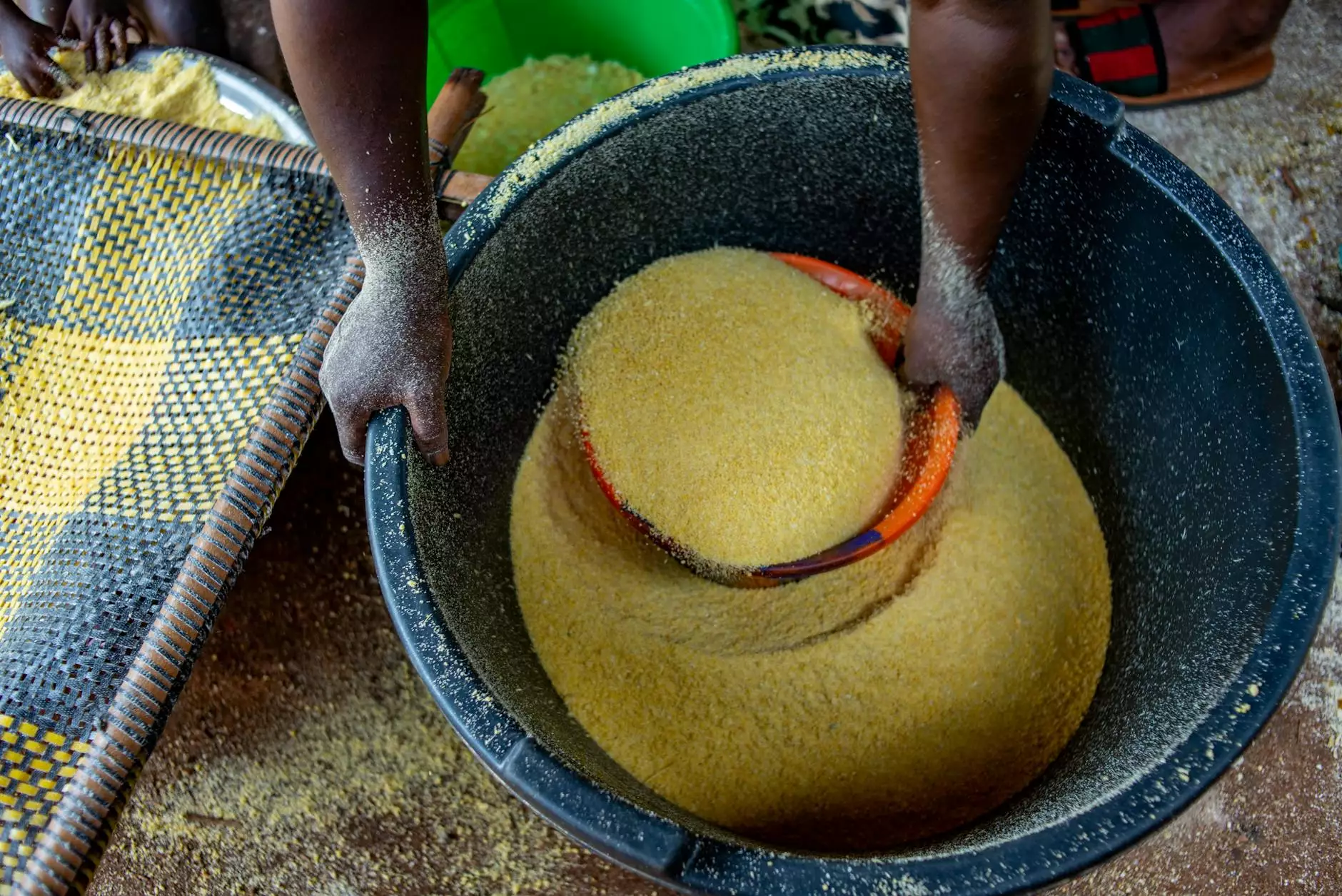Harnessing the Power of Nature: Uses for Cornmeal in the Garden

Cornmeal, a staple in many kitchens, extends beyond culinary applications and offers a plethora of gardening benefits. This unassuming ingredient can profoundly impact plant health, soil quality, and pest management. In this article, we will delve into the various uses for cornmeal in the garden, showcasing its versatility and effectiveness as a natural gardening aid.
1. Soil Enrichment
Cornmeal acts as a natural fertilizer, providing essential nutrients to the soil. Its rich carbon content promotes the growth of beneficial microorganisms which play a crucial role in soil health. Here are some ways it helps:
- Improving Soil Structure: Cornmeal can improve soil aeration and drainage by enhancing its structure. This is particularly beneficial for heavy clay soils.
- Encouraging Microbial Activity: By adding cornmeal to your compost pile, you can boost microbial activity, leading to faster decomposition and richer compost.
- Nutrient Release: The nutrients in cornmeal release slowly over time, ensuring a steady supply of nourishment to your plants.
2. Natural Pest Control
One of the remarkable uses for cornmeal in the garden lies in its ability to deter pests. Cornmeal acts as a natural repellent against various garden pests. Here's how:
- Fungi and Mildew Prevention: Cornmeal contains natural fungicides, making it effective against fungal infections. Sprinkling it around plants can deter diseases like powdery mildew.
- Caterpillar Control: Moths are attracted to cornmeal, and when spread in the garden, it can help control caterpillar populations.
- Ant Deterrent: Cornmeal can help ward off ants, which often carry pests that harm plants.
3. Seedling Protection
The protective benefits of cornmeal are particularly beneficial for young plants. When sowing seeds or transplanting seedlings, consider the following:
- Root Health: A light dusting of cornmeal on seedling roots can help prevent damping-off disease, a common ailment affecting young plants.
- Encouraging Root Growth: The nutrients in cornmeal promote root development, aiding in the establishment of strong seedlings.
- Moisture Retention: By applying cornmeal around seedlings, you can help retain soil moisture, which is vital for their growth.
4. Weed Suppression
Weeds can be a gardener's worst nightmare, but cornmeal can help manage them effectively. Here’s how to utilize it for weed control:
- Mulching: Cornmeal can serve as a biodegradable mulch that prevents weed seeds from germinating.
- Protecting Desired Plants: When applying cornmeal, make sure to use it in moderation around the base of desired plants to avoid inhibiting their growth.
- Eco-Friendly Alternative: Unlike chemical herbicides, cornmeal is an environmentally safe option for managing weeds.
5. Increasing Soil pH
If you struggle with overly acidic soil, cornmeal can help to slightly increase the pH, making it more neutral. It's a gentle approach that can benefit various plants:
- Limit Acidic Effects: Many vegetables thrive in neutral to slightly alkaline soils, and cornmeal can mitigate the effects of acidic soil.
- Sustainable Method: Using natural ingredients like cornmeal can contribute to sustainable gardening practices.
- Complementing Other Amendments: It works well in conjunction with lime or other soil amendments.
6. Enhancing Plant Growth
Cornmeal's ability to enhance plant growth is well-noted among gardeners. Here’s how it aids in the development of robust and thriving plants:
- Boosting Nutrient Uptake: The nutrients in cornmeal improve the plants’ ability to absorb essential elements from the soil.
- Stimulating Plant Metabolism: The natural sugars and starches present in cornmeal provide a quick energy source for plants, fostering growth.
- Promoting Flowering and Fruiting: Enhanced overall health can lead to increased flowering and fruiting rates in various garden plants.
7. Composting with Cornmeal
Integrating cornmeal into your compost can dramatically improve its quality. Here’s how to do it right:
- Enhancing Decomposition: Cornmeal serves as a high-carbon ingredient that can speed up the composting process.
- Attracting Organisms: The sweet scent of cornmeal attracts worms and beneficial organisms that break down organic matter faster.
- Improving Nutritional Profile: It adds essential nutrients to your compost mix that will benefit your garden when used.
8. Recipes for Cornmeal Garden Mixes
To fully leverage the uses for cornmeal in the garden, gardeners can mix it with other natural ingredients. Here are some recipes that incorporate cornmeal for different gardening needs:
8.1 Cornmeal-Based Fertilizer Mix
Combine 1 part cornmeal, 1 part compost, and 1 part worm castings. This mix provides a balanced nutrient profile for your plants.
8.2 Cornmeal Fungicide Spray
Mix 2 tablespoons of cornmeal with 1 gallon of water. Let it sit for 24 hours, then strain and spray directly on affected plants to prevent fungal diseases.
8.3 Cornmeal Weed Barrier
Use 1 cup of cornmeal mixed with water to create a paste. Apply it on the soil surface before planting to create a biodegradable weed barrier.
9. Final Thoughts: Embracing Cornmeal in Your Garden
In summary, the uses for cornmeal in the garden are numerous and multifaceted. From enhancing soil quality to protecting plants from pests and diseases, cornmeal is a gardener's ally. It is an eco-friendly option that helps promote sustainable gardening practices, ensuring that not only do your plants thrive but the earth remains healthy as well.
By incorporating cornmeal into your gardening routine, you can experience notable improvements in plant health, soil condition, and pest management. As you embark on your gardening journey, remember that nature often provides the best solutions for our gardening challenges. Embrace cornmeal's potential and watch your garden flourish!
For more tips and eco-friendly gardening supplies, visit Friendly Organics Canada.



